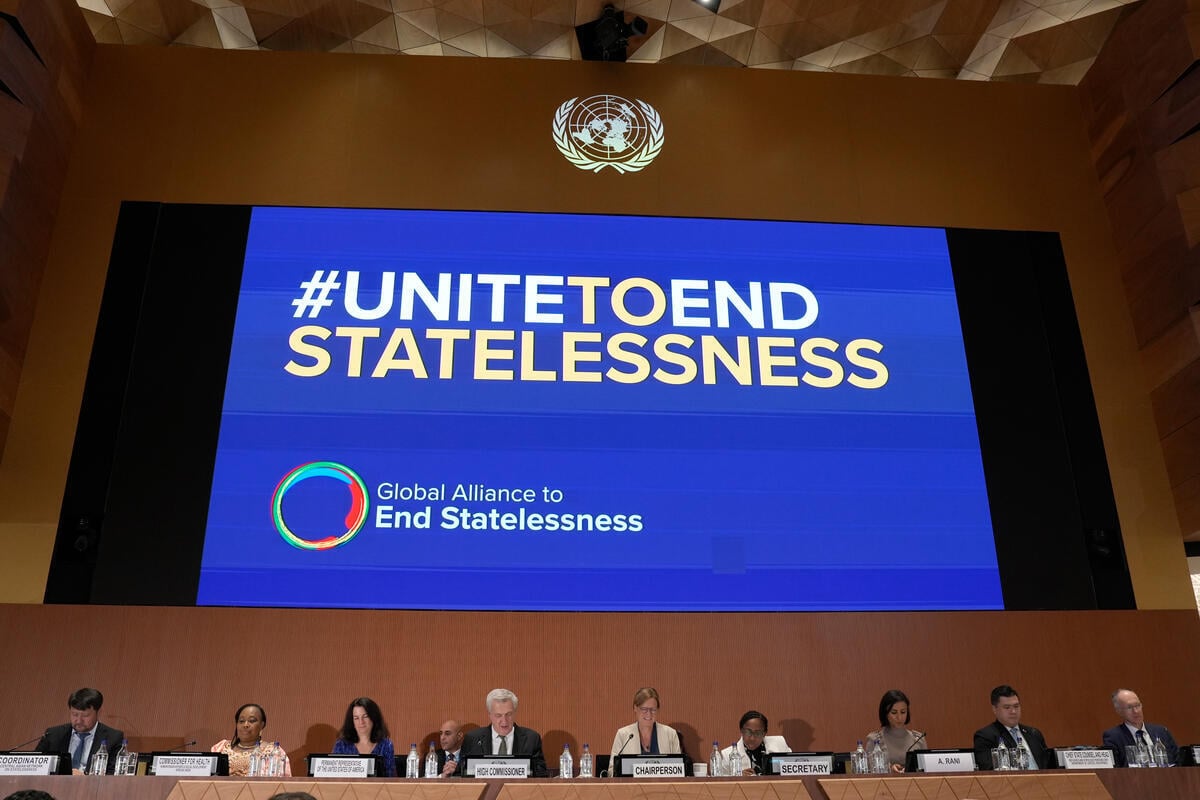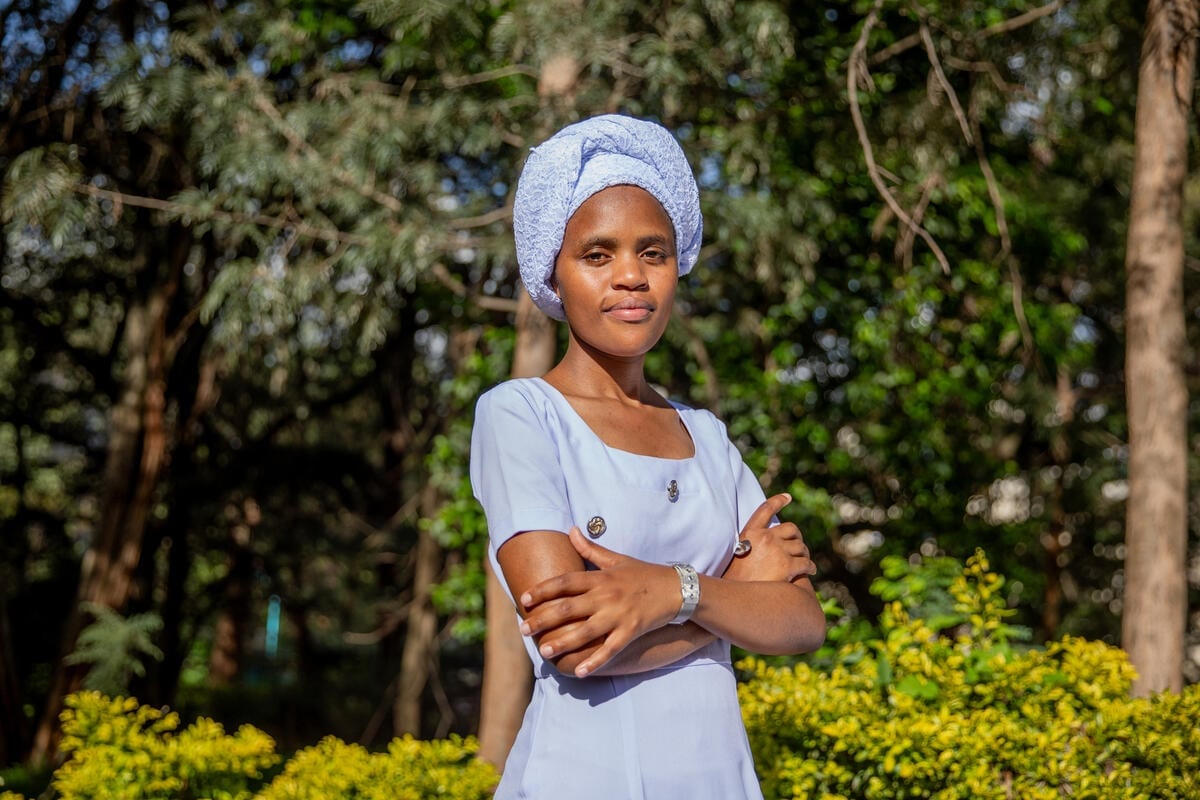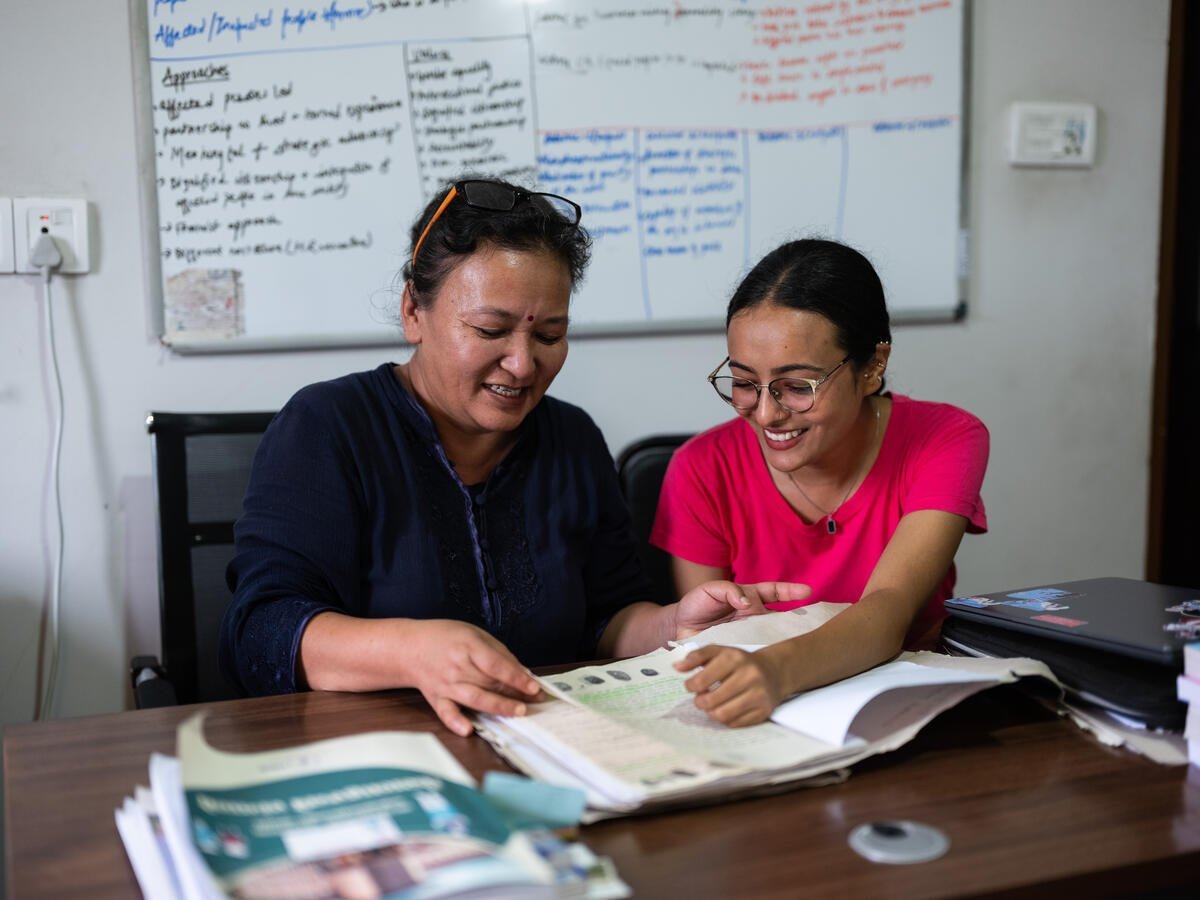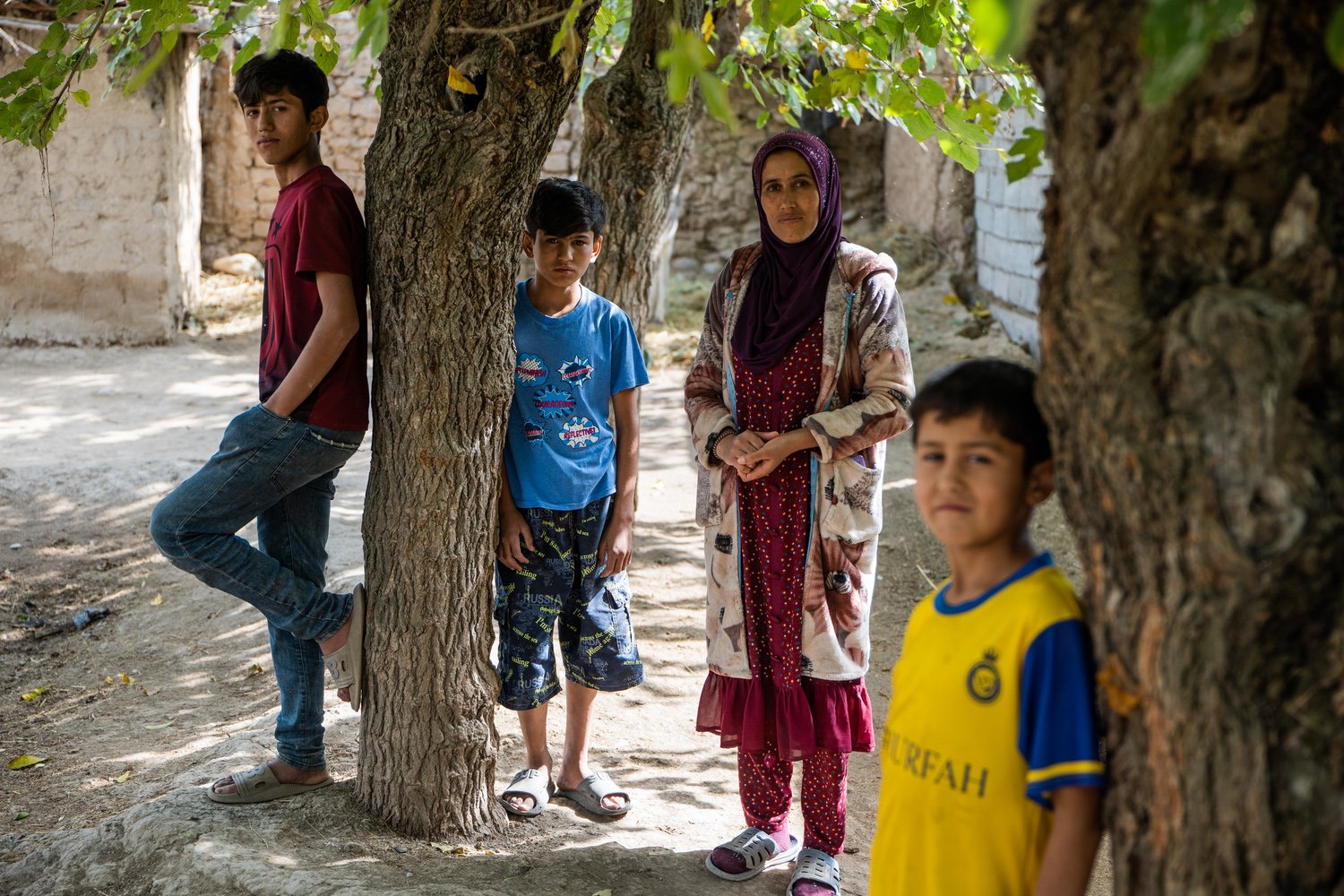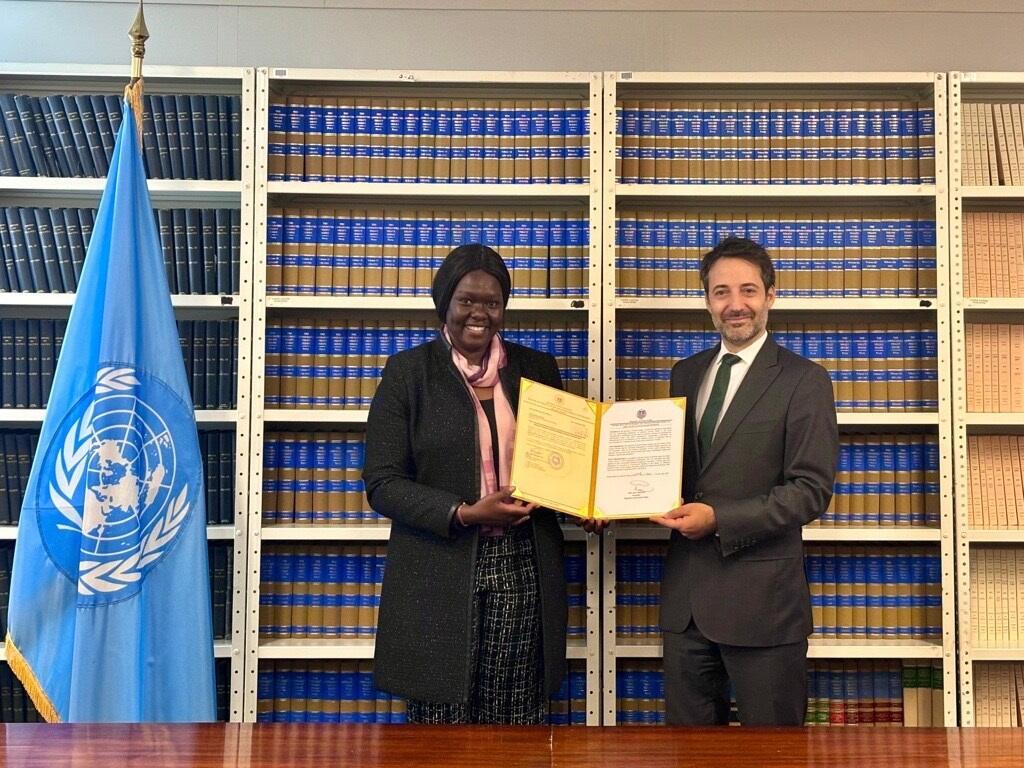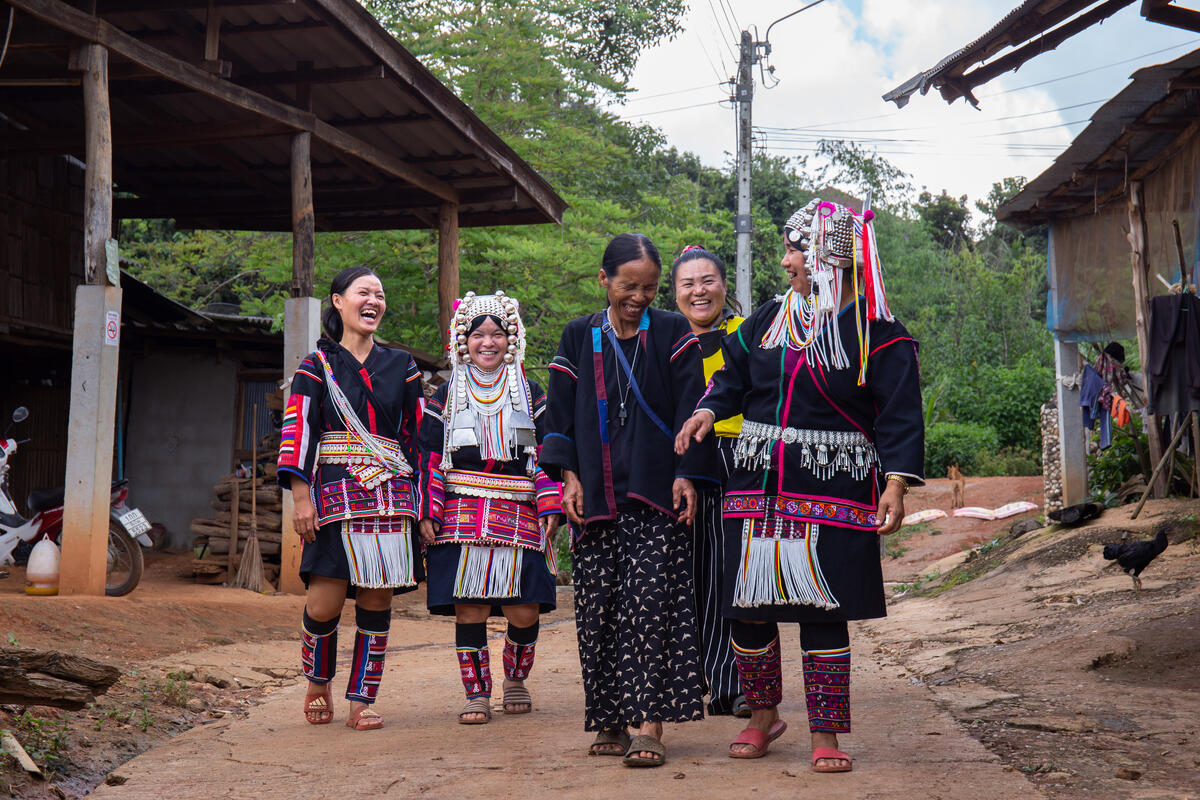UNHCR: Decade of action against statelessness brings big gains but further action needed
UNHCR: Decade of action against statelessness brings big gains but further action needed
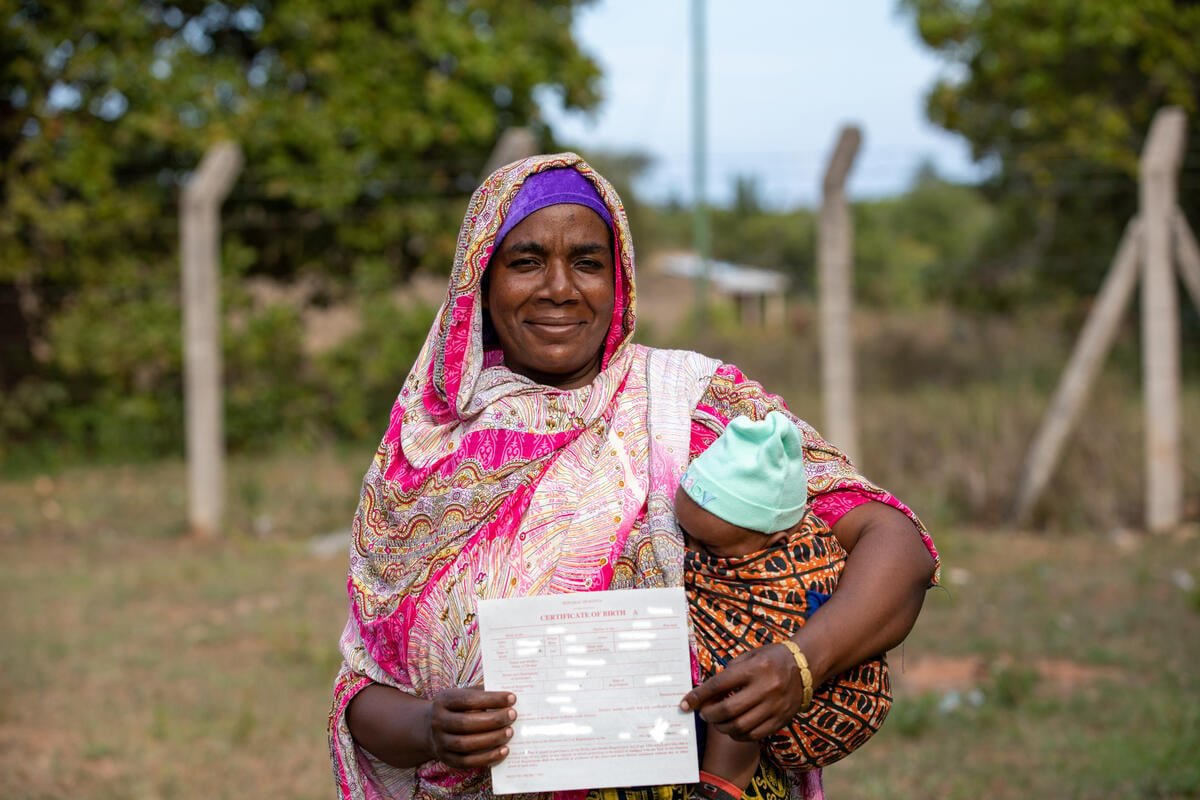
Asha Suleiman, a member of Kenya's Pemba minority, proudly displays her daughter's newly acquired birth certificate in November 2022.
GENEVA – More than half a million people around the world who were living in the shadows, deprived of their right to nationality, have now acquired citizenship since the inception a decade ago of the #IBelong campaign, according to a new report on statelessness released today by UNHCR, the UN Refugee Agency.
A major human rights violation, statelessness deprives individuals of basic legal rights, leaving them politically and economically marginalized, unable to access critical services like health and education, discriminated against and particularly vulnerable to exploitation and abuse.
UNHCR launched the campaign in October 2014 to mobilize international action to resolve the scourge of statelessness. The campaign closes this year. There have been many notable achievements over the last 10 years to enable hundreds of thousands of stateless people to acquire citizenship, to better identify and protect stateless people, or to help ensure that no child is born stateless. Since 2010, there have been a total of 77 new accessions to the 1954 and 1961 UN Statelessness Conventions. At least 22 states have adopted national action plans to end statelessness in the last decade.
From Turkmenistan to Portugal, North Macedonia, Rwanda, Brazil, Vietnam, Thailand and beyond, decisive action to counter statelessness has been taken. For example:
- KenyaLink is external has granted nationality to members of the Makonde, Shona and Pemba minorities.
- Kyrgyzstan became the world’s first country to resolve all known cases of statelessness.
- Sierra Leone, Madagascar and Liberia have advanced gender equality and the prevention of child-statelessness by granting women the right to confer their nationality on their children, on an equal basis as men.
“#IBelong was an ambitious campaign that sought to highlight this grave, invisible global injustice and to persuade states to take action,” said Ruven Menikdiwela, UNHCR’s Assistant High Commissioner for Protection. “Great strides have been made to remedy this devastating blight, but the need for further action remains critical. There are still countless people who do not exist on paper – and hence are pushed to the fringes of society, simply because of ethnic, religious or gender discrimination, or because of flaws in nationality laws and policies.”
As the #IBelong campaign approaches its end, a meeting known as the “High-Level Segment on Statelessness” will take place on Monday at UNHCR’s annual Executive Committee meeting in Geneva. Here, the global push against statelessness will continue. More than 100 government delegations and around 50 intergovernmental organizations and civil society representatives will attend. To harness the momentum, UNHCR is launching a Global Alliance to End StatelessnessLink is external at the gathering. This Alliance will unite States, UN agencies, civil society, stateless-led organizations, academia, the private sector, and many others to amplify collective advocacy efforts and drive political commitments and legal reform to ensure that everyone enjoys the right to a nationality without discrimination.
“At a time where the world is reeling from the impacts of increasing belligerency, division, and polarity, the quest for unity, inclusion and the respect of human dignity must continue,” said Menikdiwela.
UNHCR advocates for the rights of stateless people and works with a range of partners to prevent and end statelessness globally. In total, UNHCR reported 4.4 million stateless people in 2023. About 1.3 million stateless people worldwide are also displaced. Learn more about our work with stateless people.
For more information on this topic, please contact:
- In Geneva: Shabia Mantoo, mantoo@unhcr.org, +41 79 337 76 50


